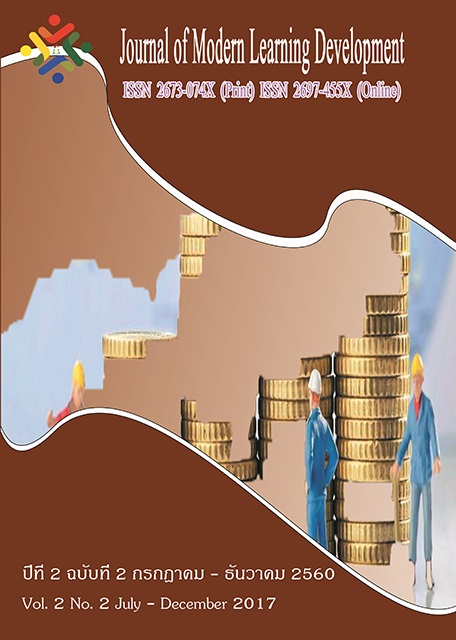The Use Of Dictatorship And Power Liberal Democratic
Main Article Content
Abstract
The use of dictatorship and liberal democratic power Dictatorship is the combination of power and authority with a single person or group. Able to control people by missing If any people object, they will be punished or imprisoned.
The use of liberal democratic power Liberal thinks that Every human being has a desire for freedom together. Humans and society cannot survive without freedom, so it's not strange that the idea of freedom Will play an important role in every place, every moment in history Call from harassment From authority Has appeared since ancient times Law can be justified when Personal freedom accepted Beginning in the 18th century, John Locke was the first person to see that each person is the owner. State righteousness Based on Of the community contract means that the governor is under the authority of the governor to govern the rights of the people.
In the past Which is at the heart of the liberal concept After being developed Is a liberal political theory Has the following characteristics The role of the state must be limited. The operation and use of any power of the state must adhere to the principles of protection of the rights and freedoms of the people such as Khlimp. Mont Tay Skier, Emanuel Kant, Wilhelm Von Humbold, Thomas Jefferson, John Stewart Mill, Economic Freedom Is the best way That will lead to stability. For this reason, freedom of movement Freedom to open the Prom Dan Free trade freedom Therefore is a demand from liberals
Article Details
References
จรูญ สุภาพ. (2522). หลักรัฐศาสตร์ ฉบับปรับปรุง. (พิมพ์ครั้งที่ 2). กรุงเทพมหานคร: โรงพิมพ์ไทยวัฒนาพานิช จำกัด.
วรรณา เจียมศรีพจน์. (2531). การเมืองเบื้องต้น. กรุงเทพมหานคร: มหาวิทยาลัยศรีนครินทรวิโรฒ.
ทองทิพย์ วิริยะพันธ์, ชินเลขา กว้างสุขสถิตย์, และพัชรินทร์ แข็งแรง. (2531). หลักรัฐศาสตร์. กรุงเทพมหานคร: มิตรนราการพิมพ์.
Campbell Jones, Martin Parker, Rene Ten Bos (2005). For Business Ethics. United Kingdom: Pluto Press.
Gérard Duménil and Dominique Lévy. (2004). Capital Resurgent : Roots of the Neoliberal Revolution. Harvard University: Press.
Jonathan Arac in Peter A. (2013). Hall and Michèle Lamont in Social Resilience in the Neoliberal Era. Boston: Little Press.
Palley, Thomas. (2004). Keynesianism to Neoliberalism:Shifting Paradigms in Economics. Basingstoke: Foreign Policy in Focus.
Pradella, Lucia; Marois, Thomas (2015). Polarising Development : Alternatives to Neoliberalism and the Crisis. United Kingdom: Pluto Press.
Springer, Simon; Birch, Kean; MacLeavy, Julie, eds. (2016). The Handbook of Neoliberalism. London: Routledge Press.
Taylor C. Boas, Jordan Gans-Morse (2009). Neoliberalism: From New Liberal Philosophy to Anti-Liberal Slogan. Studies in Comparative International Development, 44 (2), 137–61.


